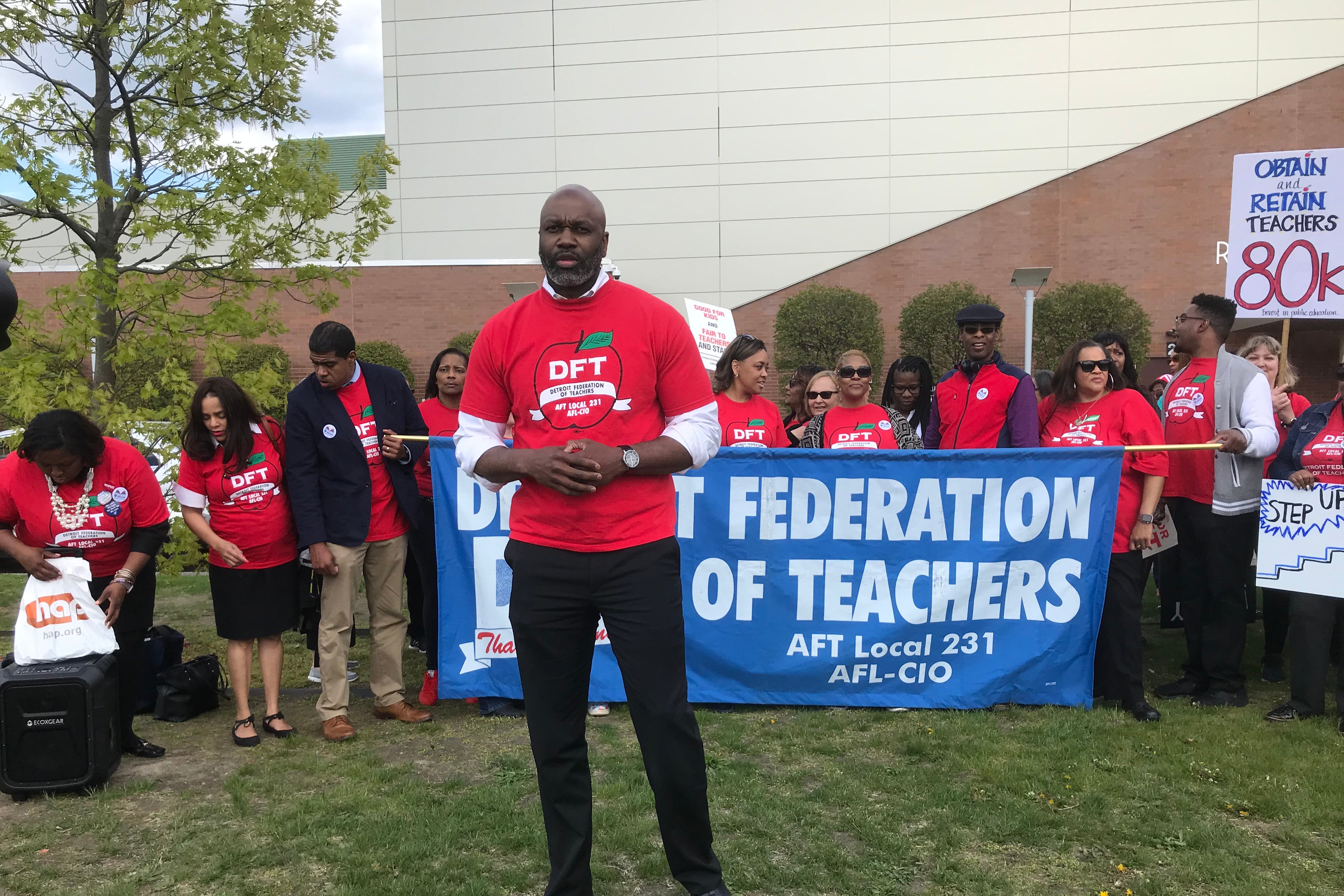Detroit teachers have overwhelmingly voted to authorize union leadership to call a “safety strike” if the school district doesn’t meet their demands to start the school year online.
“The action that the union took today is not an action that we wanted to take. It’s an action that we had to take,” Terrence Martin, president of the Detroit Federation of Teachers, said during a Wednesday evening press conference.
“It is a vote of confidence from our membership that we will do whatever we need to do to ensure the health and safety of our members.”
Martin said 91% of the union members voted yes. A safety strike would mean teachers would agree to teach and work remotely because of safety issues inside buildings. The union stressed in a press release that it is not a work stoppage.
The vote, held Wednesday afternoon during a virtual union meeting, gave the union members an opportunity to weigh in on the debate over the reopening of schools for the 2020-21 school year. The union has about 4,000 members.
The “yes” vote means union members could now walk if the district doesn’t ensure safer working conditions for members who want to teach face-to-face. Union officials are demanding a virtual start to the 2020-21 school year, saying it isn’t safe to be in school buildings during the COVID-19 pandemic.
“If talks break down and we are not able to come to an agreement, we can institute a safety strike,” he said.
In response to the union, district superintendent Nikolai Vitti and the school board issued a joint statement: “While we acknowledge the action taken today by DFT, we are also confident the school board and the district in discussion with DFT will result in a safe reopening of schools.”
Martin said as contract negotiations continue with the district, union officials want to also ensure support staff, such as guidance counselors and social workers, have the option of opting out of in-person work.
The union is asking for hazard pay for those who work in school buildings, COVID-testing for students and staff, and assurances that school buildings have proper ventilation.
Superintendent Nikolai Vitti, commenting on Twitter before the meeting, said the district and the union are making progress in negotiations.
“Conversations with the DFT have increased over the past week and we are both bargaining in good faith. The reopening process is very hard, on multiple levels, but we will get this right for our students, families and employees.”
During a school board meeting Tuesday night, Vitti said the district will ask some parents to switch their children from in-person learning to the remote-only option, or to consider transferring to a nearby school, if there aren’t enough teachers willing to teach face to face in their school buildings.
Vitti said surveys completed by a four-fifths of the district’s parents indicate 80% prefer to send their children to school online, with the remaining preferring in-person learning. He has stressed for months that parents should have that choice, and has also noted that some children need in-person learning.
Before the strike vote, some teachers outlined why they were planning to vote to authorize a strike. Among them was Erica Webb, a district middle school teacher. Webb said she wants to teach online because her son is still recovering from an illness, and she fears bringing home the virus.
“Any pathogens could possibly be a potential setback, and I’m not willing to take that risk,” she said. “I could be a potential carrier to him, my parents.”






